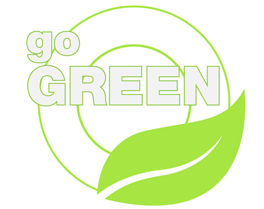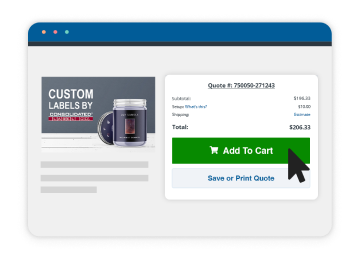
What ‘Sustainability’ Means for Businesses
An issue that many of today’s businesses are facing is how to reduce its environmental impact without raising costs or sacrificing quality. The idea of ‘sustainability’ often comes up whenever the issue of environmental responsibility is discussed. Sustainability in business essentially refers to a strategy that drives long-term corporate growth and profitability by mandating the inclusion of environmental and social issues into the business model.
Sustainable business practices are intended to reconcile the demands of the environment, society, and economy. Innovations in technology have helped a variety of industries to develop sustainable practices that can better meet those demands. In this article, we’re going to examine the label industry’s green trends to help you better understand sustainability, and show you how your business can make the transition to more eco-friendly labels.
Sustainability in the Label Industry
As part of the manufacturing sector, the label industry can improve its footprint on the environment with better management of materials waste, energy consumption, and chemical disposal. A growing number of label companies are taking various steps to address these environmental concerns and others that are facing the label industry. Label companies are investing time and resources into green initiatives in order to minimize its impact on the environment while still striving to accomplish organizational goals.
Non-profit industry organizations have also responded by creating certification programs for label companies that incorporate environmental stewardship into their business model. For instance, the Tag and Label Manufacturers Institute (TLMI) founded its L.I.F.E. (Label Initiative for the Environment) program in 2009 to assist its converter and supplier members with finding cost-effective ways to reduce their company’s environmental footprint.
Out of the thousands of label companies in the U.S., only a fraction are currently L.I.F.E. certified. Every year, however, the number of accredited label companies keeps increasing thus making the push for sustainability grow stronger. To learn more about the program, check out our article on how we became L.I.F.E. certified.
Ways the Label Industry is Going Green
The label industry isn’t the only one that has programs and certifications to help businesses implement sustainable practices. International organizations – like the Forest Stewardship Council (FSC) – have made major strides in the forestry sector by helping to create standards for wood-based products (like recyclable label stock) that come from sustainably managed forests. FSC certified paper stock and other eco-friendly materials play an important role in helping label companies and buyers become greener.
Below are some examples of green trends in the label industry so you can get a better idea of how sustainability is being achieved:
- Offering recyclable labels and other eco-friendly label materials.
- Thinner film and paper products to reduce raw materials and energy consumption.
- Regular environmental audits to assess and monitor green initiatives.
- Recycling liner and label stock waste into new types of packaging material.
- Streamlining processes to improve energy efficiencies and decrease waste output.
- Internal recycling programs with strategically placed recycling bins in facilities.
Getting Started with Eco-Friendly Label Printing
Another reason why the label industry is going green is to better serve a growing number of label buyers who want to be environmentally responsible in their own businesses. If you’ve been considering green product labels, there are some important things to consider before you get started:
- Look at Your Budget: Eco-friendly label materials – like recyclable stocks and water-soluble inks – can sometimes cost more than traditional label materials. Depending on the quantity of labels you want, green label materials can be more or the equivalent to the cost of regular materials.
- Product Compatibility: Your product’s container and contents should be carefully examined to better ensure your green product labels can work with all of its elements. If a product has contents with harsh chemicals (e.g. household cleaning), the eco-friendly label on the product can lose its quality over time. Constant use and handling may deteriorate the structure of the label by weakening the paper stock’s fibers and adhesive’s strength.
- Different Paths to Sustainability: Whether it’s by the materials you choose or the streamlined processes of your label manufacturer, there are questions you should ask your label manufacturer to better ensure your labels are eco-friendly. Some things you can inquire to your label manufacturer: green materials, recycling programs, certifications, energy and waste management, environmental audits and/or industry awards.
Sustainability in the label industry can also benefit other industries by helping them to meet the demands of the environment, society and economy in which they exist in. Although the label industry has progressed in its relationship with the environment, there’s still room for improvement. Research and development of sustainable practices is crucial not only for the U.S. label industry but for the global marketplace as businesses – regardless of size – become more interdependent.
SOURCES:
Definition: Sustainability. Retrieved from: https://dowelldogood.net/?p=500
Eagle, J. (2013, Aug 2). Avery Dennison: thinner labels more sustainable. Retrieved from: https://www.bakeryandsnacks.com/Processing-Packaging/Avery-Dennison-launches-ThinkThin-labels
About L.I.F.E.Retrieved from: https://tlmi.com/about-life/


